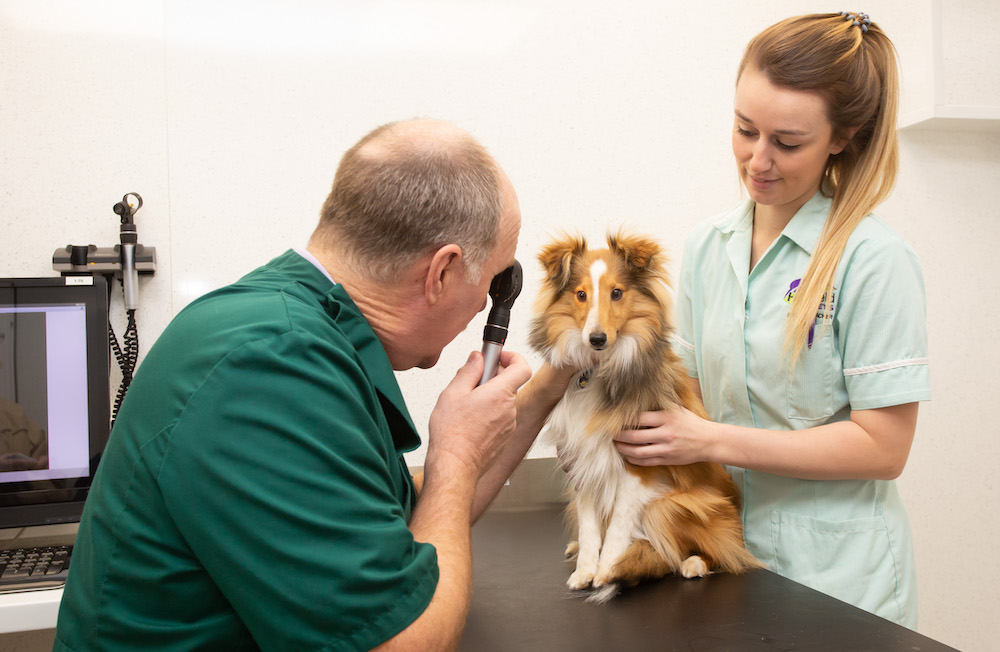 What is Cushing’s disease?
What is Cushing’s disease?
Cushing’s disease (hyperadrenocorticism) occurs when the adrenal glands over produce the steroid hormone cortisol. Cushing’s is uncommon in cats, while it is more common in dogs.
What causes Cushing’s disease?
The most common cause of Cushing’s disease is a benign tumour on the pituitary gland, a gland located at the base of the brain which produces adrenocorticotrophic hormone (ACTH), a hormone which stimulates the adrenal glands to produce cortisol. In rare cases Cushing’s can also be caused by a tumour on the adrenal glands themselves.
Cushing’s can also be brought about due to long term, high dose steroid use.
What are the signs of Cushing’s disease?
The symptoms of Cushing’s disease are often mild at first, making a diagnosis challenging. The first sign owners usually notice in their dog is an increased need to urinate with dogs asking to go out more often or needing to pee during the night. Other symptoms can include:
- Increased thirst
- Thinning of the skin
- Hair loss
- Increased appetite
- Weight gain
- ‘Pot bellied’ appearance
- Lethargy
- Panting
- Skin changes – dark patches, infections, oily skin
Many owners may just associated some of the observed symptoms with ‘getting older’ and be unaware that their dog has developed a serious health issue. This is why regular annual health checks with your vet are so important.
Who is at risk of Cushing’s disease?
Some breeds are pre-disposed to Cushing’s such as poodles, dachshunds, Boston terrier, Yorkshire terriers, boxers and beagles. The disease can affect any middle aged to senior dog.
How is Cushing’s disease diagnosed?
Your vet will perform a complete physical exam as well as blood screening, urine analysis and possibly diagnostic imaging. If Cushing’s disease is suspected your vet may request a test to measure the cortisol levels followed by an ACTH stimulation test. In this test the cortisol levels are measured before and after administering a synthetic hormone (ACTH) which stimulates the production of cortisol. This can give your vet a definitive diagnosis of Cushing’s.
How is Cushing’s disease treated?
Whilst the disease cannot be cured, it can be effectively managed, with patients leading normal, long lives. Affected dogs will need life-long medication to control the condition. Regular vet check-ups and diagnostic testing is necessary to monitor your pet’s stability on their medication.
Call us on 01435 864422 if you think your pet may be showing signs of Cushing’s disease or book a health check via our online booking system.

